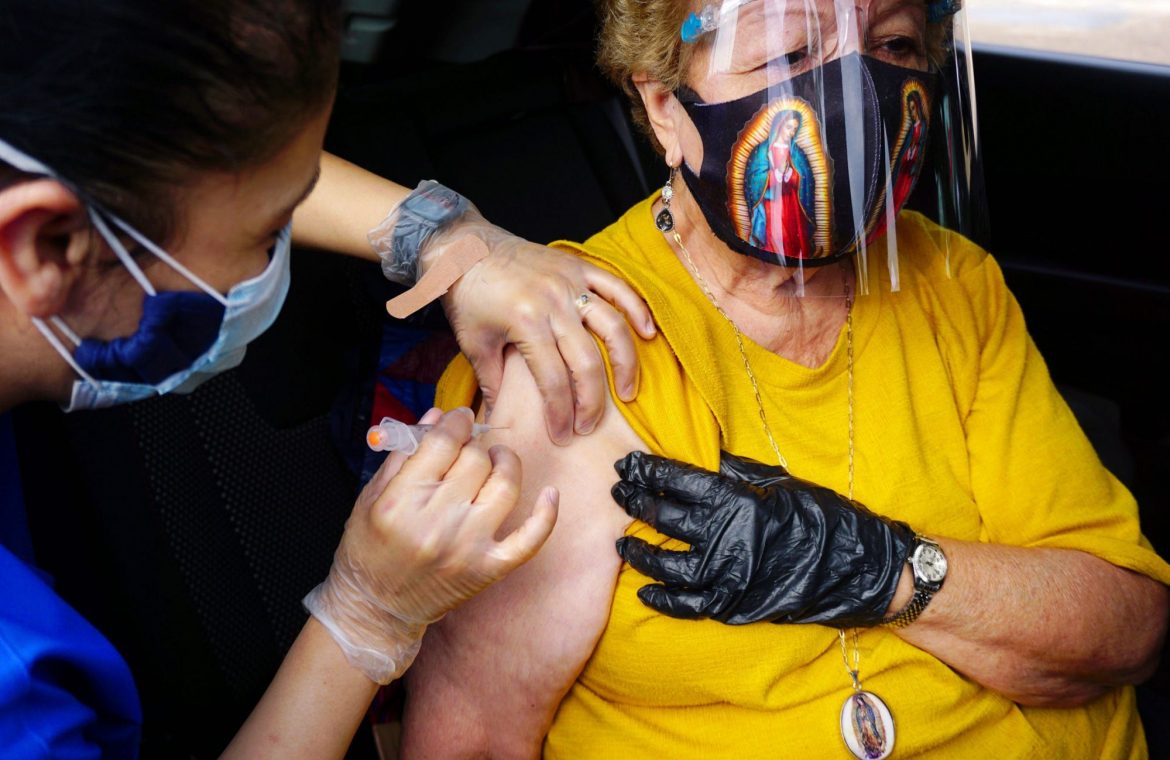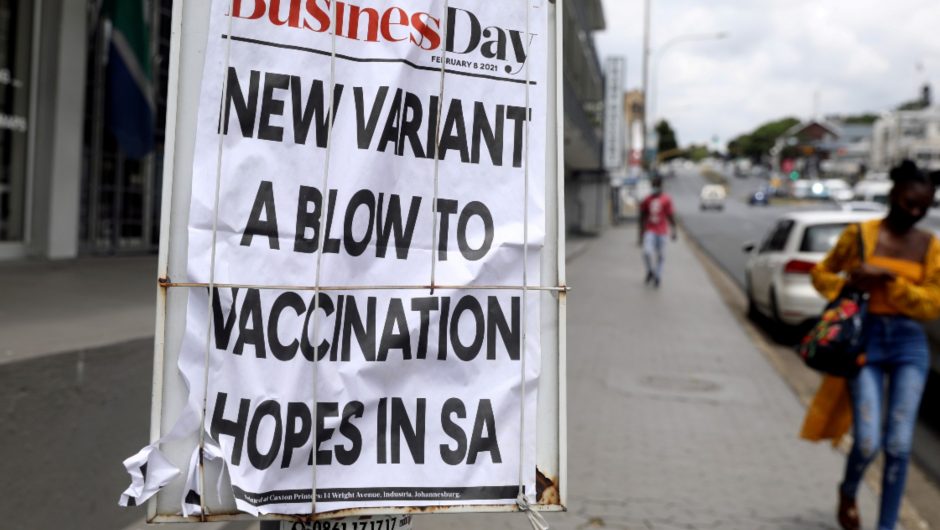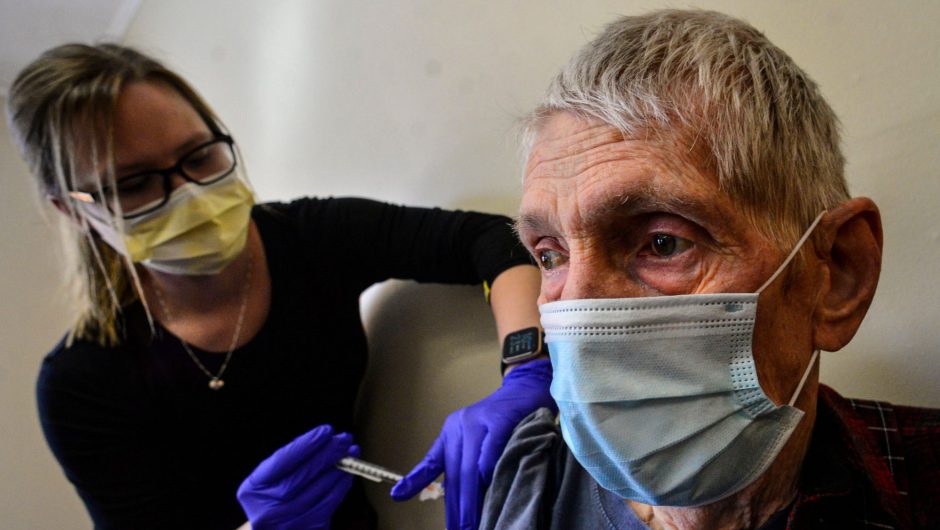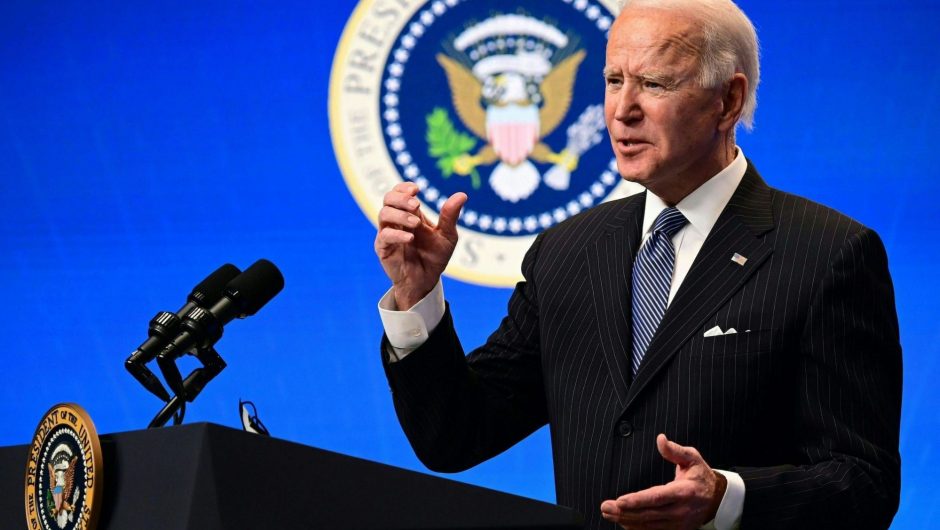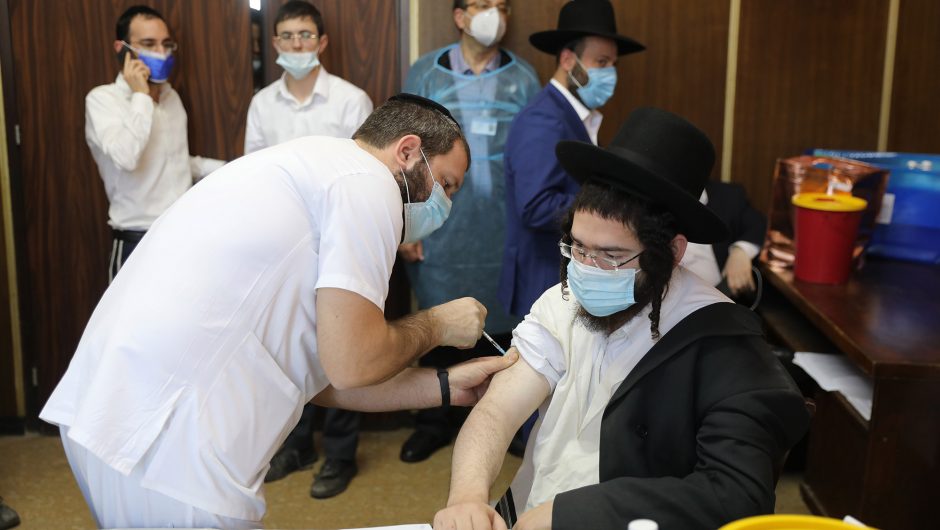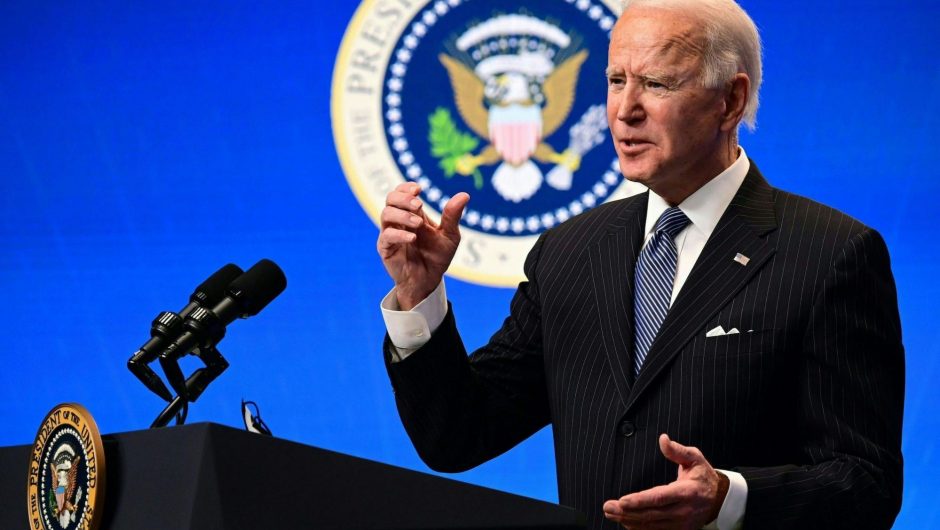Chicago schools are set to reopen this week after a tentative agreement was worked out with the teachers’ union over COVID-19 safety protocols, potentially averting a strike in the third-largest school district in the nation.
Under the possible deal, which still requires approval by the Chicago Teachers Union, pre-K and special education programs would return Thursday and other groups would be staggered. Kindergarten through fifth grade students would go back to school March 1 and middle schoolers a week later. No return date has been set for high schoolers.
Elsewhere, the unions that represent San Francisco school district workers said Sunday that they also have tentatively agreed to a deal that would allow public schools to reopen, the San Francisco Chronicle reported.
And some California churches opened their doors to worshippers after the state revised its guidelines following a Supreme Court ruling that lifted a ban on indoor services during the coronavirus pandemic.
COVID-19 has killed nearly 465,000 Americans, and infections have continued to mount despite the introduction of a pair of vaccines late in 2020. USA TODAY is tracking the news. Keep refreshing this page for the latest updates. Sign up for our Coronavirus Watch newsletter for updates to your inbox, join our Facebook group or scroll through our in-depth answers to reader questions.
In the headlines:
►On the same day as hosting Super Bowl LV, Florida on Sunday became the first state to report 200 variant COVID-19 cases, according to USA TODAY analysis.
►Pfizer expects to nearly cut in half the amount of time it takes to produce a batch of COVID-19 vaccine from 110 days to an average of 60 as it makes the process more efficient and production is built out, the company told USA TODAY.
►South Korea’s daily tally of newly confirmed coronavirus cases fell below 300 Monday for the first time in more than two months as authorities slightly eased the country’s tough physical distancing rules.
Story continues
►Researchers in Britain say a new study of 2,000 people indicates the AstraZeneca/Oxford vaccine provides minimal protection against mild or moderate disease from the South Africa variant of the coronavirus. The study, which did not assess the vaccine’s effectiveness in preventing severe disease, raises serious concerns about the efforts to stem the pandemic mostly through inoculations. South African officials said they would postpone the country’s rollout of the AstraZeneca vaccine while they study the findings.
►Fatigue, fever and losing the sense of taste or smell are commonly known symptoms of COVID-19. A British researcher has documented other maladies linked to the coronavirus, and they’re not pleasant.
►New coronavirus cases are on the decline in the United States following staggering post-holiday peaks last month, but experts say it’s too early for new COVID-19 vaccines to be having an impact.
📈 Today’s numbers: The U.S. has more than 27 million confirmed coronavirus cases and 463,400 deaths, according to Johns Hopkins University data. The global totals: More than 106 million cases and 2.31 million deaths. More than 59.2 million vaccine doses have been distributed in the U.S. and about 41 million have been administered, according to the CDC.
📘 What we’re reading: The development of a COVID-19 vaccine, from DNA to doses, is a complicated, months-long process. Follow along on a step-by-step journey of a Pfizer dose. Read the full story.
Maria Flores receives an injection of the Moderna COVID-19 vaccine from Brownsville Independent School District nurse Martha Demetrio on Friday at a vaccination clinic at Texas Southmost College in Brownsville.Super Bowl, super spreader? Public health officials brace for COVID surge.
Public health officials across the nation are bracing for a possible surge in coronavirus cases if Americans fail to take heed of warnings not to gather for Super Bowl parties Sunday.
The game itself will be played before 22,000 masked fans, many of them vaccinated health care workers, at the Tampa Bay Buccaneers’ stadium. Experts with the Centers for Disease Control and Prevention have been among many health officials warning Americans to gather with friends over Zoom, not over bowls of guacamole in their living rooms, lest the parties become super spreader events across the nation.
“I’m worried about Super Bowl Sunday, quite honestly. People gather, they watch games together. We’ve seen outbreaks already from football parties,” said Dr. Rochelle Walensky, head of the Centers for Disease Control and Prevention. “So I really do think that we need to watch this and be careful.”
Pfizer expects increase in efficiency will relieve bottlenecks in vaccine rollout
Pfizer expects to nearly cut in half the amount of time it takes to produce a batch of COVID-19 vaccine from 110 days to an average of 60 as it makes the process more efficient and production is built out, the company told USA TODAY.
As the nation revs up its vaccination programs, the increase could help relieve bottlenecks caused by vaccine shortages.
“We call this ‘Project Light Speed,’ and it’s called that for a reason,” said Chaz Calitri, Pfizer’s vice president for operations for sterile injectables, who runs the company’s plant in Kalamazoo, Michigan. “Just in the last month we’ve doubled output.”
The increased speed and capacity is not unexpected, said Robert Van Exan, president of Immunization Policy and Knowledge Translation, a vaccine production consulting firm.
– Elizabeth Weise
Dr. Anthony Fauci: Not enough time to study impact of delaying second dose
The nation’s top infectious disease expert said Sunday that it would not be prudent to delay second doses of COVID vaccines because it would take too long to study the impact.
From “a theoretical standpoint” it would be good to know the durability of one dose, he said. But the Pfizer and Moderna vaccines have been thoroughly tested for a second dose in three weeks and four weeks, respectively, he said.
“The amount of time that it will take, the amount of people you would have to put into the study – by that time, we will already be in the arena of having enough vaccines to go around anyway,” Fauci said on NBC News’ Meet the Press. “What we have right now, and what we must go with, is the scientific data that we’ve accumulated, and it’s really very solid.”
Contributing: The Associated Press
This article originally appeared on USA TODAY: COVID news: AstraZeneca vaccine; South Africa variant; Chicago schools


